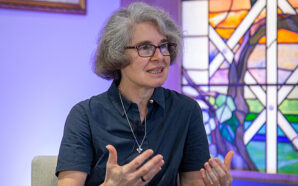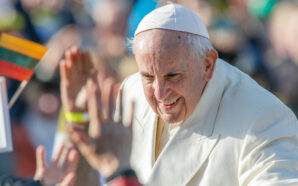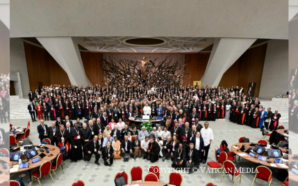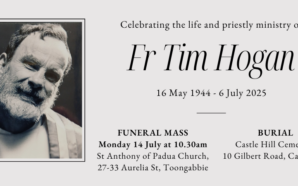Pope Francis continues to give ever greater importance to proclaiming — and meditating on — the Word of God.
At the end of the Great Jubilee of the Year 2000, Pope John Paul II issued what may be one of the most hope-filled documents of his long and (at least in terms of publications) prolific pontificate.
It was an apostolic exhortation called Novo millennio ineunte (At the Start of the New Millennium). It was dated January 6, 2001 — the Solemnity of the Epiphany — and set out an exciting vision for the Catholic Church’s mission at, well, the beginning of the Third Millennium.
There’s pretty strong evidence to suggest that the late French Cardinal Roger Etchegaray (d. 2019) was the actual author of this text or at least the one who oversaw the drafting of it.
He had already been the archbishop Marseilles for 14 years in 1984 when John Paul appointed him president of the old Pontifical Council for Justice and Peace.
The cardinal ended up spending the rest of his life in the Eternal City and might have even been elected pope had the pontificate of the man who brought him to Rome in the first place not been itself quasi-eternal!
When the Polish pope died in April 2005, the Frenchman was already 82 years old and could not even vote in the Conclave.
Vatican Council II and the Word of God
Whether Etchegaray was the ghostwriter of Novo millennio ineunte (NMI) or not, the text never seemed to be accorded the importance it deserved. What most people seem to remember most about this apostolic exhortation, is the Latin phrase that’s used as its leitmotif — Duc in altum!
Our hearts ring out with the words of Jesus when one day, after speaking to the crowds from Simon’s boat, he invited the Apostle to “put out into the deep” for a catch: “Duc in altum” (Lk 5:4). Peter and his first companions trusted Christ’s words, and cast the nets. “When they had done this, they caught a great number of fish” (Lk 5:6). (NMI, 1) Cardinal Etchegaray officially launched the apostolic exhortation at a Vatican press conference. And on that occasion, he highlighted these lines from the document:
What a treasure there is, dear brothers and sisters, in the guidelines offered to us by the Second Vatican Council! (…) Now that the Jubilee has ended, I feel more than ever in duty bound to point to the Council as the great grace bestowed on the Church in the twentieth century: there we find a sure compass by which to take our bearings in the century now beginning (NMI, 57).One of the gems in Novo millennio ineunte that was overlooked at the time, it seems to me, was the brief section No. 39 titled, “Listening to the Word”.
It is here that the papal document makes it clear that “the primacy of holiness and prayer” in the lives of believers “is inconceivable without a renewed listening to the Word of God”.
Lay people devoted to the Scriptures
John Paul affirms that “the Second Vatican Council underlined the pre-eminent role of the Word of God in the life of the Church” and he acknowledges that, since then, “great progress has certainly been made in devout listening to Sacred Scripture and attentive study of it”.
He points to the “rightful place of honor” that Scriptural readings have taken “in the public prayer of the Church” since Vatican II. And also notes approvingly the many “individuals and communities” that “now make extensive use of the Bible”.”
Among lay people there are many who devote themselves to Scripture with the valuable help of theological and biblical studies,” he goes on to say.
“But it is above all the work of evangelization and catechesis which is drawing new life from attentiveness to the Word of God,” according to John Paul.
The late pope, in this text, insist that “this development needs to be consolidated and deepened”. One of the ways this can happen is by “making sure that every family has a Bible”.
But that’s not all.”It is especially necessary that listening to the Word of God should become a life-giving encounter, in the ancient and ever valid tradition of lectio divina, which draws from the biblical text the living word which questions, directs and shapes our lives,” says the conclusion of this section.
Benedict XVI and Pope Francis
John Paul II published those words 21 years ago in the twilight of his long reign as Bishop of Rome.
And the two men who have since succeeded him on the Chair of Peter — Benedict XVI and Pope Francis — have taken these few lines in an otherwise ignored document and have made them come to life.
People who closely follow the activities of Francis know that each Sunday before praying the Angelus and asking God’s blessing on the crowds in St. Peter’s Square he offers reflections on the Gospel passage of the day’s Mass.
The popes did not always do this. It was a longstanding custom to use the weekly appointment as a platform for commenting on current events in the world or the Church.
Then sometime in 2010 or 2011, Benedict XVI changed that and began using the Angelus gathering to reflect on the Sunday liturgical readings. Francis continued that from the very start of his own pontificate in 2013 and has done it ever since.
“Lectio divina” and a Bible in your bag
Benedict also lays heavy stress on the importance of lectio divina — the slow and prayerful rumination over a short scripture passage — that has long been practiced in monastic circles.
The former pope even led groups, notably the students at the Pontifical Roman Seminary, in lectio-like sessions of meditating on the Word of God.
Pope Francis, for his part, has urged people to carry a small Bible or at least a copy of the New Testament in their purse or bag — or download it on their smartphone. And, on occasion, he’s had Bibles distributed to people who attend the Sunday Angelus.
The Jesuit pope continuously encourages people to read at least one passage each day from the Sacred Scriptures.
This may not seem like a big deal to most younger people — or those who are older but have short memories. After all, Christianity and the Bible are practically synonymous, right?
Not Roman Catholic Christianity. At least not before the Second Vatican Council (1962-1965). I was born between the second and third sessions of the Council and I remember when growing up that my family (and my relatives) had a Bible in the home.
But it was big ornamental-type book stuffed with prayer cards from funerals, not something anyone ever read. Catholics just did not do that sort of thing!
A new milestone on the journey of rediscovering the Word of God
Instead, these decorated Catholic Bibles seemed more like sacred keepsakes. They even included several pages where the dates of births, first communions, confirmations and other sacraments were to be inscribed for each family member.
Fortunately, the parish school we attended in the 1970s introduced us to reading the Bible. And then during ninth grade at the all-boys high school run by the Oblates of St. Francis de Sales we had a religion teacher who taught us how we could actually pray with the Scriptures.
The North American Bible we were required to purchase for the class still sits among my books, having been replaced by other translations over the years.
There are likely still too many Catholics who do not read the Scriptures with any regularity, but we have come a long way since Vatican II.
And Pope Francis now takes us to another milestone on our journey of rediscovering the importance of the Word of God in our individual and communal faith lives.
His decision to personally confer the Ministries of Lector and Catechist on lay men and women during a papal Mass in St. Peter’s Basilica on Sunday of the Word of God (January 23) is much more monumental than most of us probably think right now.
Perhaps we’ll have a different view in 21 years from now.
With thanks to Robert Mickens and La Croix International, where this article originally appeared.







